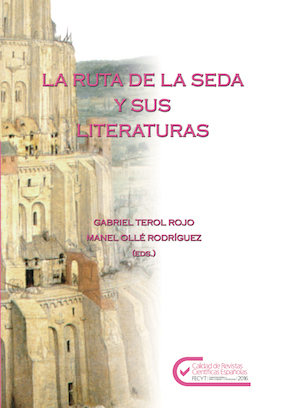Estepa i rutes de la seda fron a l'espill de la Regió Autònoma Uigur de Xinjiang. Fronteres fluides i construcció de narratives històric-identitàries
DOI:
https://doi.org/10.7203/qdfed.23.13428Paraules clau:
uigur, Xinjiang, identitat, narratives històriques, colonialisme Resum
Resum
La proposta per a aquest capítol és la d'analitzar com, a partir de les fronteres imperials establides sota el període de govern Qing, les poblacions “bàrbares”/frontereres han sigut incloses –més o menys forçosament–, en una definició–més o menys àmplia–, de “Xina”. Després d'una succinta introducció històrica sobre el territori, el meu objectiu és el de començar a posar l'accent en la influència, a nivell cultural, lingüístic, identitari i religiós, de la regió que –després de la seua annexió a l'Imperi Qing– ha passat a denominar-se Xinjiang, en relació amb els actors polítics i socials circunstants,
i tractant de puntualitzar unes especificitats històriques de la regió, en un context euroasiàtic més ampli.
 Descàrregues
Descàrregues
Descàrregues
Publicades
Com citar
-
Resum699
-
PDF (Español)572
Número
Secció
Llicència
 Este obra está bajo una licencia de Creative Commons Reconocimiento-NoComercial-SinObraDerivada 4.0 Internacional.
Este obra está bajo una licencia de Creative Commons Reconocimiento-NoComercial-SinObraDerivada 4.0 Internacional.
Tots els documents inclosos a OJS són d'accés lliure i propietat dels seus autors i/o institucions editores, i per tant, qualsevol acte de reproducció, comercialització, comunicació pública o transformació total o parcial necessita el consentiment exprés i escrit d'aquests.
________
Authors who publish with this journal agree to the following terms:
- Authors retain copyright and grant the journal right of first publication with the work simultaneously licensed under a Creative Commons Attribution License that allows others to share the work with an acknowledgement of the work's authorship and initial publication in this journal.
- Authors are able to enter into separate, additional contractual arrangements for the non-exclusive distribution of the journal's published version of the work (e.g., post it to an institutional repository or publish it in a book), with an acknowledgement of its initial publication in this journal.
- Authors are permitted and encouraged to post their work online (e.g., in institutional repositories or on their website) prior to and during the submission process, as it can lead to productive exchanges, as well as earlier and greater citation of published work (See The Effect of Open Access).



